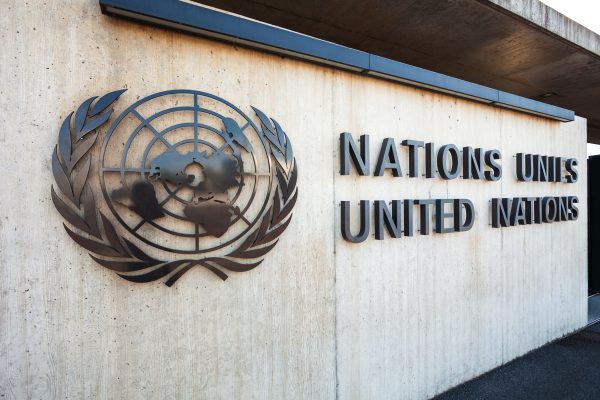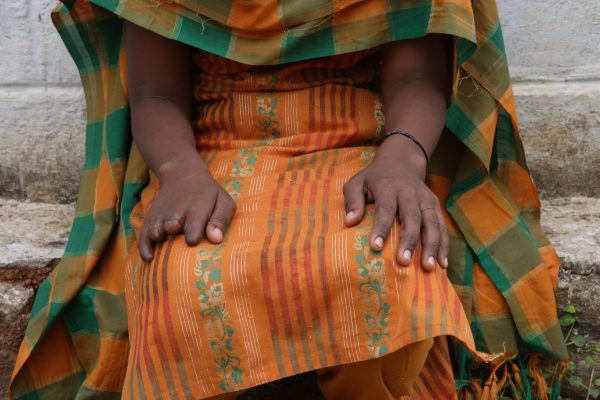This website uses cookies so that we can provide you with the best user experience possible. Cookie information is stored in your browser and performs functions such as recognising you when you return to our website and helping our team to understand which sections of the website you find most interesting and useful.

The fifth Session of the Open-ended Inter-governmental Working Group (OEIGWG) for the elaboration of an International Legally Binding Instrument on Transnational Corporations and other Business Enterprises with respect to human rights began on Monday 14 October 2019, at the UN in Geneva.
The first day of negotiations began with the election of the Ecuadorian Chairperson Rapporteur, Emilio Izquierdo, without objections. Upon the acceptance of his role, Mr Izquierdo explained the broad consultation which has taken place over the past months to incorporate states’ submissions and views on the previous draft, as a means to further developing the text and moving forward with the treaty process. More than 40 submissions have been considered in the revision of the previous draft, including from UN bodies, inter-governmental organisations, states and civil society organisations (CSOs).
Positive feedback has been presented by the academic community as well as experts involved with the drafting of the United Nations Guiding Principles on Business and Human Rights (UNGPs), in particular with regards to the expanded scope; the current drafts’ coherence with other areas of law; and the complementarity of the current draft and the UNGPs.
Opening statements were made by over 20 states from all regions of the world as well as the regional organisations; the European Union (EU) and the African Union (represented by Angola). States representing large populations were present, namely China, India, the Russian Federation and Brazil. The vast majority of states as well as the EU congratulated the Ecuadorian Chair-rapporteur for having addressed concerns from the previous session in the new draft text. The vast majority of state delegates expressed their commitment to constructively engage in the current session with a view to developing the Treaty.
In their opening statements numerous states, such as Azerbaijan, Angola, Cuba, South Africa and India, expressed their serious concern with the growing number of corporate-related human rights violations around the world. South Africa expressed the need for multilateralism in such uncertain global times, and that only through the process of active engagement and negotiation can the existing open issues within the text be resolved and developed.
In stark contrast, the EU delegate Guus Houttuin announced that it would not be participating in the negotiations, as the EU had not yet received a mandate from the incoming European Commission. In order to achieve such a mandate, the Commission would need to actively seek agreement from its Member States. Moreover, the EU is still in the process of analysing the current draft text, and would therefore only be asking questions of clarification. The EU representative however highlighted the expectation that the incoming Commission will begin work on a form of due diligence legislation to cover supply chains, citing the responses of incoming Justice Commissioner REYNDERS to his European Parliament hearing, thereby effectively announcing in international fora a strong signal that the EU is planning on legislating in this area.
The treaty’s relation with the UNGPs and other areas of law
Colombia and Switzerland were the only states present to question the added value of a Treaty in addition to the UNGPs.
Many states (Peru, Brazil, Argentina, Algeria) as well as the EU throughout the day expressed their satisfaction that the revised draft has become further aligned with the UNGPs, notably concerning the concept of human rights due diligence (HRDD). Argentina noted the closer alignment with the recent OECD Due Diligence Guidance for Responsible Business Conduct.

Campaigning for a UN Binding Treaty in Geneva.
However, many states and CSOs expressed concern with the restrictive use of the term ‘contractual relationships’ to define the scope of business activity, which is narrower than what is found in the UNGPs, namely ‘business relationships’. A number of country delegates and CSOs submitted that the wording of the UNGPs on this crucial element be adopted, South Africa also proposing the term ‘equity relationships’.
Various states, such as India, China and Honduras expressed the need to link the Treaty to the Sustainability Agenda 2030 and the Sustainable Development Goals (SDGs) and the ‘right to development’. India also noted that it has already reformed its national company law to ensure that companies contribute to a social purpose. China expressed that there should be more synergy within the text to sustainability and that, while transnational corporations (TNCs) play a role in fulfilling the ‘right to development’, their negative impacts must be regulated. It furthered that the instrument must not disable so-called developing countries from the benefits of TNCs. Like many other states, it expressed the need to not create new obligations on states within the current instrument, as this would also be beyond the mandate of the working group.
On the issue of scope, the Russian Federation was one of a small group of nations at odds with its expansion, submitting that the former formulation focussing on transnational corporations should be maintained. Azerbaijan and Palestine expressed their gratitude that new language on conflict areas has been included, submitting that this needed to be strengthened.
The relation of the current draft with other areas of international law was a matter of discussion. States such as Argentina expressed caution on how this instrument would interact with international trade law; whereas China submitted that all references to international humanitarian law be removed on the grounds that this is a distinct area of law. Expert Professor Robert McCorquodale countered that other international instruments manage to touch upon various areas of law and references to international humanitarian law should not therefore be deleted so hastily. Venezuela noted that as the draft touches on other areas of international law, efforts should be made to avoid duplication of work and consistency.
Submissions were also made by the European Network of National Human Rights Institutions (ENNHRI) stating that the binding Treaty must develop from the established international consensus and be aligned with and go further than the UNGPs. Together with members of the European Parliament such as Maria Arena (S&D) and Manon Aubry (GUE/NGL), a number of CSOs called on the European Commission to secure a negotiating mandate, pointing out that over 650,000 EU citizens have called for a binding Treaty.
The need for a definition of victim and a gender approach
Ecuador submitted that an individual complaints mechanism against corporations would be a positive element, including a Treaty body in charge of monitoring and implementation of the Treaty.
Various states and the International Chamber of Commerce (ICC) questioned the inclusion of environmental rights into the draft; mentioning that there is limited international consensus on the status of environmental rights (as compared to human rights). The ICC stated that whilst a Treaty is undesirable, national legal developments in the area of business and human rights are, in their view, consistent with the UNGPs.
Many submissions from CSOs and states, such as Spain who was the only EU Member State to speak on its own accord, highlighted the need for a gender approach to the Treaty draft, in particular the inclusion of gender discrimination to certain articles. This approach was questioned by Egypt on behalf of the Islamic bloc of over 50 countries. Spain was also one of various states and CSOs praising the inclusion of added language on Human Rights Defenders.
The definition of victim in the draft text attracted many comments and questioning. The Russian Federation proposed to include a sub-category of ‘alleged victims’, which was questioned by Brazil, proposing alternatively the Inter-American Court of Human Rights’ definition of ‘injured party’ (a proposal also made by expert Kinda Mohamadieh). Another suggestion made was ‘affected persons’. A comment from Brazil on the definition of “harm”, namely whether in the course of business operations some harms could be considered necessary “for the greater good”, raised eyebrows within the room.
Many delegates acknowledged that the Treaty will have to strike the right balance between specificity and flexibility so that it can be adopted by many state parties.
South Africa submitted that the UNGPs are the lowest standard that can be achieved in this instrument, and that all human rights should be actionable and claimable under the Treaty. The EU intervened to question how human rights and human rights violations could be defined in the instrument in a clear manner, to which Professor McCorquodale replied referring to the EU’s Non-Financial Reporting Directive (NFRD) requiring companies to report on human rights due diligence (HRDD), or other similar existing legislations.
Professor McCorquodale said that references to climate change and business impacts should be addressed in the draft.
Mr Izquierdo emphasized that this Treaty draft is based fundamentally on procedural rights on access to remedy, meaning the right of victims to bring cases to competent courts. He urged parties to consider the right to reparation embodied in international human rights law, in international humanitarian law, as well as recognized in the UNGPs.
This blog series on the UN treaty is supported by the Rosa Luxemburg Foundation.












